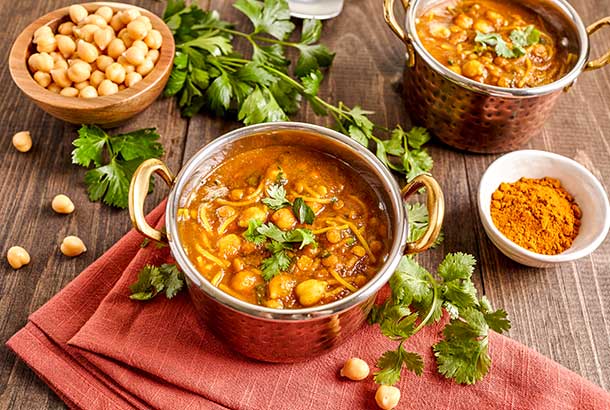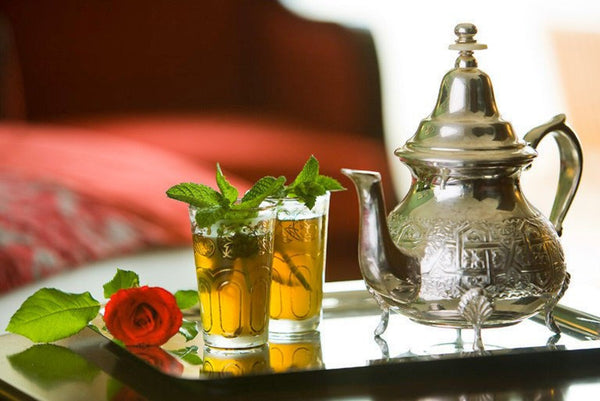Embark on a gastronomic journey through Morocco, a land where flavors are as vibrant and diverse as its landscapes. Moroccan cuisine is a tantalizing tapestry woven with threads of Berber, Arab, Moorish, and Mediterranean influences, resulting in dishes that are both exotic and comforting. Get ready to awaken your senses!
Did you know? Spices are the heart and soul of Moroccan cooking. Ras el hanout, a complex blend that can contain up to 30 different spices, is a testament to the intricate flavor profiles you'll encounter. Learn more about Moroccan culture on your next tour!
Tagine: The Iconic Slow-Cooked Stew
No culinary exploration of Morocco is complete without indulging in a Tagine. Named after the conical earthenware pot in which it's slow-cooked, a tagine is a succulent stew that can feature tender lamb, chicken, beef, or fish, often combined with vegetables, olives, preserved lemons, and fragrant spices like turmeric, ginger, saffron, and cumin. The slow cooking process allows the flavors to meld perfectly, creating a dish that's rich and aromatic.
:max_bytes(150000):strip_icc()/chicken-tagine-with-preserved-lemons-olives-2394715-hero-01-a06855bac5f54993ac299107f87a2de8.jpg)
Popular variations include chicken with preserved lemons and olives, lamb with prunes and almonds, and vegetarian tagines bursting with seasonal vegetables. Each bite is a taste of Moroccan tradition. Interested in a cooking class? Check out our Marrakech experiences!
"To cook a tagine is to practice patience—let the flavors mingle in the slow dance of time."
Couscous: The Friday Tradition
Couscous holds a special place in Moroccan hearts and homes, traditionally served on Fridays, the Muslim holy day, for family gatherings. These fine, steamed semolina grains are light and fluffy, forming a perfect bed for a savory stew of meat (often lamb or chicken) and a colorful array of vegetables like carrots, zucchini, turnips, and chickpeas. The dish is often delicately spiced and served with a flavorful broth.

One beloved variation is "Couscous Tfaya," which includes a sweet and savory topping of caramelized onions and raisins, often spiced with cinnamon. The communal act of sharing couscous is a beautiful expression of Moroccan hospitality.
Pastilla: The Sweet and Savory Pie
Prepare for a delightful surprise with Pastilla (or Bastilla), a unique and intricate pie that masterfully blends sweet and savory flavors. Traditionally made with pigeon meat (though chicken is now common), the filling is encased in layers of flaky warqa pastry, similar to filo. The meat is cooked with spices, then layered with an almond mixture flavored with orange blossom water, cinnamon, and sugar.

The top is dusted with powdered sugar and cinnamon, creating a truly unforgettable dish often served at celebrations and special occasions. Seafood pastilla is another popular version found along the coast.
Harira: The Heartwarming Soup
Harira is a rich, tomato-based soup that's a staple in Moroccan households, especially during Ramadan to break the fast at sunset. It's packed with lentils, chickpeas, vermicelli or rice, and often small pieces of lamb or beef. Flavored with ginger, turmeric, and cilantro, Harira is both nourishing and incredibly flavorful.

Served hot with a squeeze of lemon juice and often accompanied by sweet dates or chebakia (honey-coated pastries), Harira is the ultimate Moroccan comfort food.
Traveler's Tip: Don't be shy to try street food versions of these dishes! Some of the most authentic flavors can be found in bustling medinas. Explore the souks of Fes for an unforgettable food adventure.
Mint Tea: More Than Just a Drink
No Moroccan culinary experience is complete without participating in the ritual of Moroccan Mint Tea, often jokingly referred to as "Berber Whiskey." This sweet, fragrant tea is a symbol of hospitality and is served at all times of the day, to welcome guests, conduct business, or simply relax. It's typically made with green tea, fresh spearmint leaves, and a generous amount of sugar, poured with flair from a height to create a frothy "head."

Accepting tea is a sign of politeness, and the ceremony of its preparation and serving is an art form in itself.
"In Morocco, the table is where hearts meet, and food is the bond that brings us closer."
Moroccan cuisine is an adventure for the palate, a celebration of fresh ingredients, aromatic spices, and age-old traditions. Each dish tells a story of the country's rich history and culture. So, when you visit Morocco, come with an appetite and be ready to fall in love with its incredible food! Explore our suggested tours to experience these flavors firsthand.